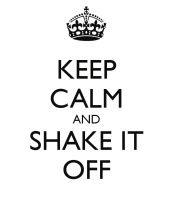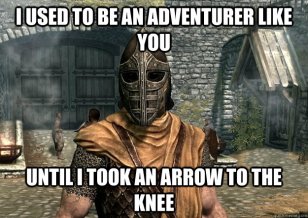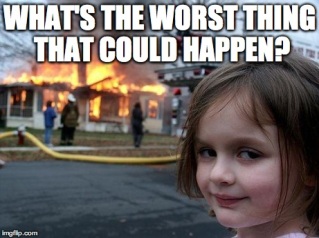
You waited all day to show Bobby your short story. Bobby doesn’t know it, but you’ve been editing the piece for weeks. You’ve poured your blood, sweat, and tears into every single word, and your stomach is fluttering with excitement at the thought of his reaction.
Finally, the fated moment comes when you slip your 10-page story over to him, fighting not to bite your nails or jump up and down as he…. glances at it, says, “I’ll read it later,” and goes back to scrolling through Facebook on his phone.
I’m sure you’ve all dealt with a similar situation – there you are, completely and totally thrilled about something you’ve created, and there someone is, not really caring about it.
It’s not that they’re trying to hurt you or downplay what you’ve done (unless they have some weird vendetta against you for stealing their Cheetos), it’s that they don’t get that you essentially just handed them your baby.
It’s easy to end up feeling hurt in these situations – like they don’t care about what you’ve done, or they don’t respect the work you’ve put into it.
The thing is, if they don’t write, if they don’t do whatever creative thing that you’re passionate about, they can’t possibly get where you’re coming from.
Here’s the truth: Just because someone may not be as excited as you are about a piece of your work does not make it:
- Bad
- Useless
- Terrible
- Lame
In the end, one opinion matters: yours.
Don’t get me wrong, I realize if you’re writing for an audience or an editor, things get trickier, but if you end up stressed because you’re trying to please everyone else, you lose sight of why you started writing in the first place. You lose sight of writing because it’s a passion, because it makes you happy. Don’t let writing become a chore because you’re jumping through everyone’s carefully placed hoops.
Write for you.
Edit for others (if need be).
And when it comes to showing off your work, find a critique partner. Find someone who will be as excited about your work as you are, or at least who is willing to give you constructive criticism. Someone you trust.
In the meantime, shake it off.
Hold your head high.
Walk on.
Write on.
If your writing is important to you, that’s what matters.
If that short story is important to you, that’s all that matters.
You matter.
Your writing matters.
Your dream matters.
And don’t let anyone ever convince you otherwise.







